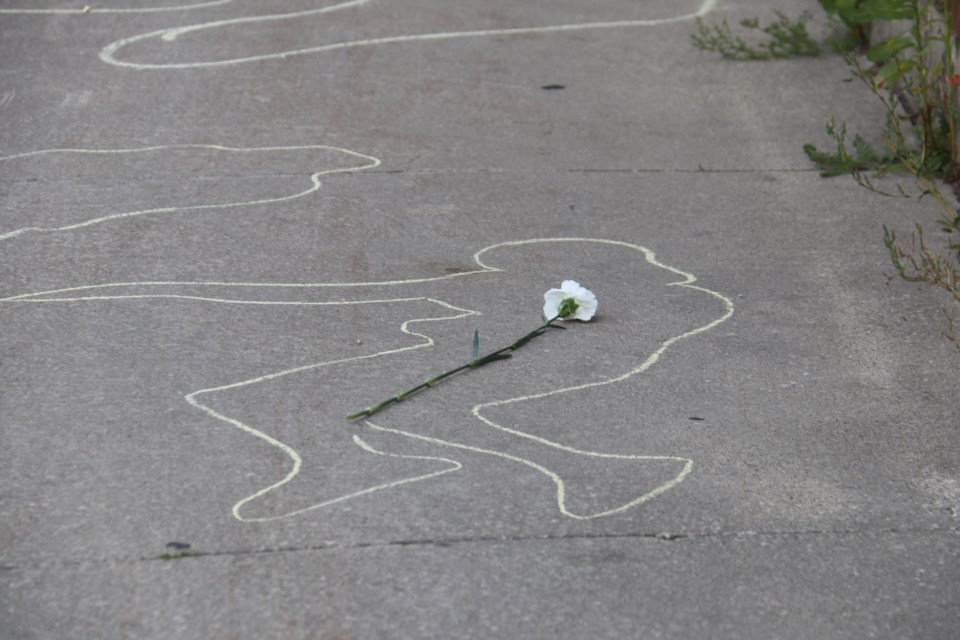Around 50 people gathered at the intersection of Main Street and King Street in Mount Forest on Wednesday afternoon for the town's first International Overdose Awareness Day.
The event is held in Guelph annually by the Wellington Guelph Drug Strategy and HIV/AIDS Resources & Community Health (ARCH), and was brought to Wellington County for the first time as the community sees an increase in drug-related services like safety supply and naloxone outreach.
“We might feel like this is a city problem. But it’s happening here in our community,” said Elsa Mann of the Mount Forest Family Health Team.
People aren’t dying because of greed, or because they’ve done too much, said ARCH overdose prevention coordinator Karen Lomax. They’re dying because the quality of the street drugs is not consistent.
Fentanyl is 100 times stronger than morphine, taking only two grains the size of salt to kill a non-addicted person.
“It’s killed more folks than breast cancer… it’s killed more folks than COVID-19,” Lomax said.
She said when drug dealers mix fentanyl, they add in bulking agents that are not responsive to naloxone, and you get something called hot shots.
“Imagine chocolate chip cookies being made. You mix your batter, throw in your chips, give it a stir. You look at each cookie; you can’t guarantee that each cookie has 26 chocolate chips. Some have 12, some have 30. It’s what happens when we mix fentanyl in a back alley, and that is why folks are dying or suffering from drug poisoning.”
That is how local Elizabeth Dexler lost her 40-year-old brother.
“The street drugs that took my brother one night shouldn't have killed him,” Dexler said. “Sure, he made an addicts choice to take them. But again, it shouldn't have been his last choice.”
There are many layers of addiction, she said. For instance, co-addiction: her brother was addicted to alcohol and cocaine. When he became drunk, he would allow himself to take cocaine – the two went hand-in-hand.
“Addiction is a progression of circumstances. Poverty, hereditary exclusion, loneliness, helplessness.”
Her brother was successful, employed, engaged, financially stable. But still, addiction found him.
“No one wakes up and says let’s do some crack cocaine, that sounds like fun. It’s not fun,” she said.
Lomax agreed.
“Let me assure you there was not one day in my addiction where I woke up and said, today's a great day to be an addict. I'd love to lose my children. I definitely would love to lose my home. And I'd love to lose my soul to addiction. Not one day.”
Which is why, she said, we need to start asking the right questions.
“The fact that folks have no home, the fact that folks who are disabled can't buy groceries and pay rent in the same month. And then the elderly, who have worked all their lives, and now find themselves unable to survive because they're retired,” she said, explaining that all of these things can lead to addiction.
Even if someone goes into recovery, if they are not supported in these ways, they will likely wind up back where they started.
“So as the work begins within the county to bring options to folks who are dancing with opioid addiction, we should keep in mind that it's not the only issue that folks are dealing with. And without addressing those other issues that brought someone to addiction in the first place, are we really getting folks to share a fair shot?
“Recovery … is not just abstinence. It means giving folks the necessary tools to have a shot at recovery. And that is why our work has just begun.”
Another event will be held in Guelph for Overdose Awareness Day on Aug. 31.
